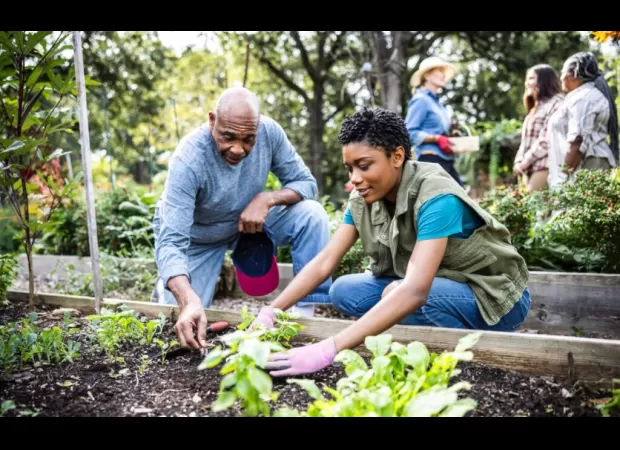The Black Church Food Security Network in Baltimore is promoting independence in local communities through food production.
Rev. Dr. Heber Brown promotes self-sufficiency through the Black Church Food Security Network in Baltimore.

Rev. Dr. Heber Brown, a prominent figure in Baltimore, is making significant strides towards empowering marginalized communities by promoting self-sufficiency through the Black Church Food Security Network (BCFSN). His belief that addressing health challenges and improving the quality of life can begin in one's own backyard is at the core of his mission.
BCFSN is all about encouraging individuals, especially within the African American community, to grow their own food. Brown recognizes the power of this message, particularly within Black churches, where health issues like diabetes, heart disease, and cancer are prevalent. By shifting the narrative from relying on charity to fostering a community-driven food system, Brown's initiative has sparked a sense of empowerment among those involved.
One example of BCFSN's impact can be seen at Pleasant Hope Baptist Church, where Brown was once a pastor. Instead of depending on external charity organizations, the church established a garden on their own grounds to grow food. This not only positively impacted the church community but also inspired other churches and pastors to follow suit.
Brown emphasizes that BCFSN is not just about producing food; it's about creating a "FUBU" (For Us, By Us) food system. Currently, the network consists of approximately 250 churches nationwide, each growing and selling food from their own land. Brown explains that this approach empowers communities to take care of themselves and partner with others from a position of strength and power, rather than relying on benevolence and charity.
The variety of crops grown within the network is diverse, from tomatoes and bell peppers to corn and watermelon. Brown also stresses that one does not need vast acres of land to participate in growing food; even small backyards, windowsills, or buckets can be utilized effectively.
Recognizing the challenges of cultivating food independently, Brown advocates for a collaborative strategy. He encourages people to engage with their neighbors, community groups, and churches to promote a shared sense of responsibility.
Looking towards the future, Brown envisions a generation that recognizes the power of self-help. He hopes for communities to build for themselves, creating essential resources without depending on external assistance. This vision aligns with the recent efforts of Black-owned farms, such as Local Lands in Georgia, to combat food deserts and promote self-sufficiency within their communities. With leaders like Rev. Dr. Heber Brown leading the charge, the seeds of change are being sown, and a brighter future for Black and marginalized communities is within reach.
6 Views






